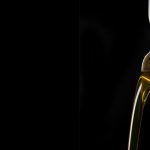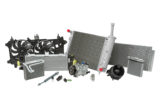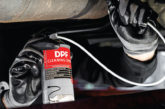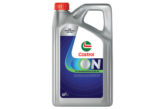PMM reviews some of the cases investigated by the Verification of Lubricant Specifications (VLS) over the past four years, as part of its work to protect mechanics and motorists by upholding standards in the lubricants industry.
VLS was formed in 2013 when the lubricants industry faced a problem. Some lubricant products were being sold on the marketplace with claims that were simply unrealistic. Closer inspection found that occasionally sub-standard formulations were being passed off as the latest specifications, or even failing to perform effectively at low temperatures.
Out of this concern, reputable lubricant blenders and manufacturers came together to launch the Verification of Lubricant Specifications (VLS). Since its inception in 2013, it has arbitrated over 50 different lubricant complaints covering issues such as cold weather properties through to compliance with industry standards and market regulations.
Case 1: Engine gear oil that turned solid at cold temperatures
In 2014, a case was reported to VLS with concerns about the low temperature properties of an engine gear oil. In independent laboratory testing, the product was found to turn solid at -40⁰C. Whilst the temperature in some parts of the country rarely stays below freezing for a sustained length of time, in Scotland extreme temperatures are not uncommon. To be within specification, lubricants must be able to perform even in these extreme conditions to avoid accelerated wear to gears and bearings during low temperature operation and start-up conditions.
VLS takes action
VLS worked with the supplier concerned to initiate a product recall, remove the old stock from sale and reformulate the product to meet the specification. Trading Standards were involved to ensure the required action was taken.
Andrew Goddard, Chairman of VLS says: “This was one of the first cases VLS investigated and it was a real education for the supplier involved. As a result of the process, they were much more aware of the aims and objectives of VLS and how important adhering to specifications was. Lubricant blenders may be tempted to reduce the amount of additive treat in a blend as they don’t expect to reach ambient winter temperatures that low. However, products still need to meet specification in order for the trade and the public to have continued confidence that the products they are buying are fit for purpose and will help protect against damage to vehicles.”
Ongoing education
VLS continues to investigate all new product claims, as well as reaching out to the wider motor industry and motorists themselves to improve understanding about oil choice. Education in the lubricants sector and beyond is key to ensuring standards remain high and that lubricants being sold are fit for purpose and deliver what is claimed.
If you have any concerns about lubricant products, you can report them to VLS by calling 01442 875922 or emailing admin@ukla-vls.org.uk. VLS handles all cases anonymously through a clearly defined process which includes technical review by a panel of experts from across the industry and dialogue with the manufacturer and all relevant parties to work together to resolve any issues.











